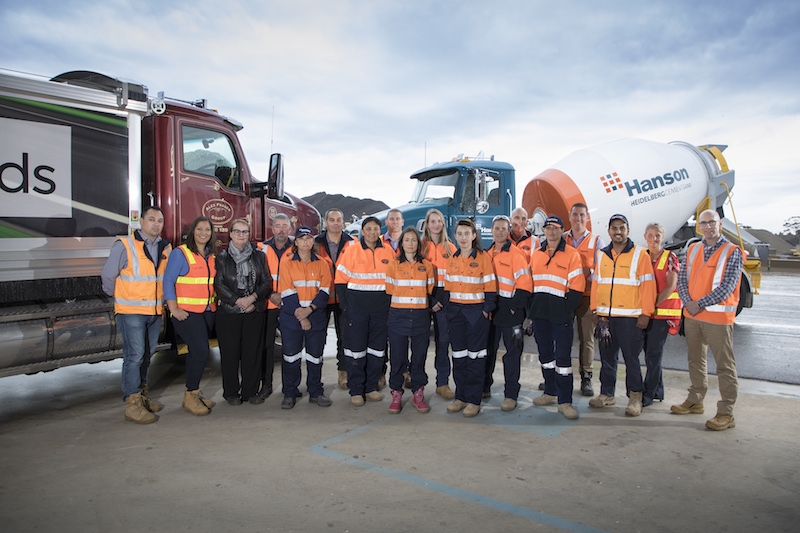In today’s candidate-driven market and with the future of work constantly evolving, a number of industries are facing tough recruitment challenges – particularly the driving industry. But with smart recruitment advertising, attraction strategies, and screening processes, it’s possible to secure the best talent. In a Recruitment Marketing Magazine exclusive, we spoke with Jeff Burns about the success of Alex Fraser and Hanson’s first Women Driving Transport Careers program.
Under a partnership with Transport Women Australia Limited and Volvo Group Australia, Wodonga TAFE’s Transport Division DECA are delivering Women Driving Transport Careers (WDTC) programs to attract women to the transport industry.
The program is designed to bridge the gap between licensing standards and professional industry requirements. WDTC is aiming to increase the participation of women in driving roles across the Australian Road Transport industry as part of the solution to address the shortage of drivers across this sector.
We spoke with Jeff Burns, HR Manager for Hanson Southern Region and Alex Fraser Group, who partnered with these organisations to offer candidates a free 4-week training program of theory and practice driving training, with payment from day one and permanent full-time employment.

“We have 4000 employees and 1800 truck drivers, so our pipeline for drivers needs to be solid, particularly as the business grows and we add trucks to our transport fleets. So, we really had to understand what was changing in the transport driver marketplace,” said Burns.
Interestingly, this marketplace is growing due to the online shopping industry, which has caused a boom in the need for professional drivers for package delivery. Unfortunately for Alex Fraser and Hanson, this has soaked up a lot of talent in this area.
“Our Australian CEO for Hanson, Phil Schacht, has joined Male Champions of Change which enables male business leaders to champion gender diversity in their organisation. He felt we could do something in our driver workforce through our recruitment.”
Burns started conversations with Wodonga TAFE and DECA who mentioned their upcoming driver training programs, as they had conducted a pilot program run earlier in the year. He then worked to determine the obstacles Alex Fraser and Hanson were up against.
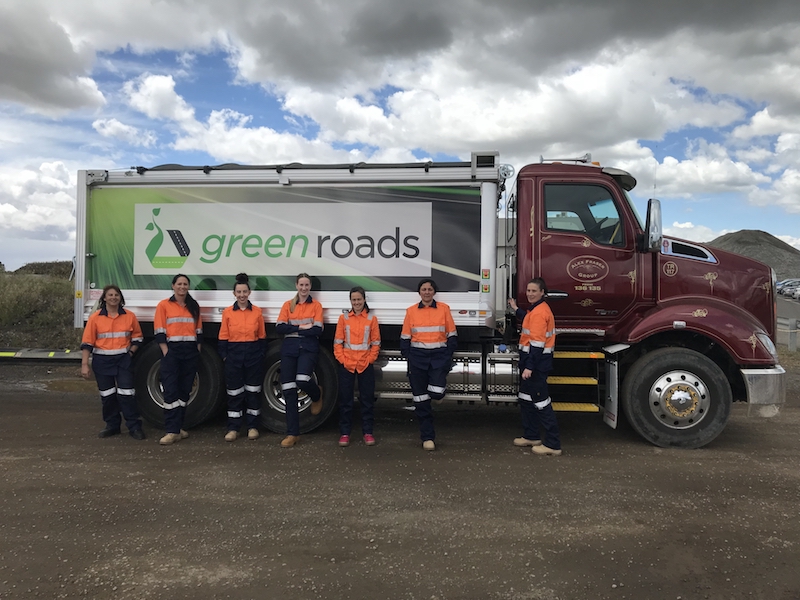
Recruitment challenges
As well as industry competitors stealing talent, another challenge is that Alex Fraser and Hanson are more compliance-driven and require high-calibre, reliable, and safe drivers, with experience, who are willing to use log books, take fatigue breaks, and are prepared to stay drug-free.
“It can be hard to find these people, as the work is perhaps not as attractive, with longer working hours, weekend work, and pay in other sectors, such as parcel delivery, can be competitive. The work is also physically demanding and unless drivers are job fit there can be injuries. So it’s not without its challenges!”
The WDTC program was, therefore, an opportunity for Alex Fraser and Hanson to secure eight new trained employees. Participants in the program receive support and training to prepare them for their driving tests. They also have the opportunity to drive the same trucks as they would be when employed.
“We provided permanent employment from day one. Our candidates underwent a 4-week intensive course at Wodonga TAFE, passed their tests, and joined our organisation as full-time drivers. It’s not necessarily about gender. We need access to the best talent, and if the truck license is a barrier to gaining employment and they’re interested in the work, then this program removes that obstacle.”
While this was a great outcome for Alex Fraser and Hanson, what were the steps they took to get there?
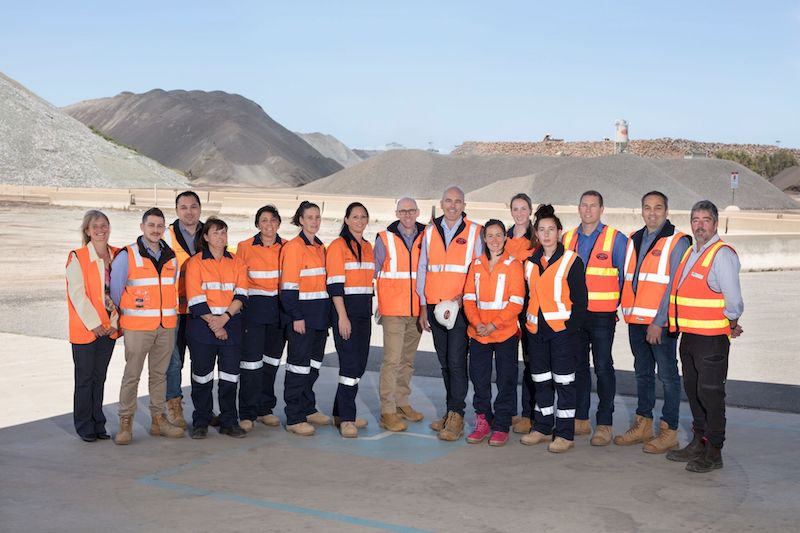
Recruitment advertising, attraction, and screening
While the WDTC is a great opportunity for candidates, Alex Fraser and Hanson faced the challenge of recruiting women who were not necessarily looking for a new job, let alone considering a job in the driving industry. Burns obtained the knowledge and experience of recruitment specialists Employment Office, who ran a dual-branded Alex Fraser and Hanson recruitment advertisement.
“We used traditional job boards, and complemented this with targeted social media advertising campaigns and promoted this on our company social channels. It was, by and large, a very positive and widely-shared social media post. We were really surprised by how many thousands of people looked at it, and how far around the world it went!”
Alex Fraser and Hanson were able to target their advertisement at women, as the opportunity qualified under equal opportunity legislation. (Note, if your organisation is looking to recruit a certain demographic, ensure your advertisement is not discriminatory. Equal opportunity law is state-based, so check the law in your location before you advertise.)
“Recruitment was challenging, in that we were looking for people who didn’t necessarily have a commercial driving background. Instead, we had to ask what qualities might we shortlist on instead. This included things like adventurousness, willingness to have a go, an ability to deal with customers, and being serious about safety.
“In our shortlisting process, we also looked for other attributes in the absence of a commercial driving record, such as candidates with connections to driving through family members who have been drivers, those who grew up on farms and had experience in heavy machinery, or those who have done 4WDing or adventure travel.”
The recruitment advertisement also included a number of screening questions, asking candidates to list any relevant experience, what interested them in the opportunity, and what made them think they would enjoy the work.
After using these screening questions to create a shortlist, recruiters conducted a phone screening process to illuminate candidates’ other qualities, such as customer service and safety experience, and preparedness to have a go. Recruiters also obtained factual information such as clean driving history and confirming candidates’ availability for employment and training.
Shortlisting and selection
Alex Fraser and Hanson received approximately 260 applications for their eight roles. From this talent pool, they invited 30 candidates to attend a group assessment day which was run by Employment Office.
“Sometimes candidates don’t fully appreciate what they’re in for. So a large part of the group assessment day was dedicated to the reality of the roles. For example, concrete truck driving is different to tipper driving, with different hours and requirements. From there, candidates could express their preference.”
After the group assessment day, seven candidates were offered employment.
“We had a challenging timeline of six weeks from advertising to making the offer, including comprehensive truck driver medicals. Some of our candidates had to provide notice at their other organisations, but we had to complete training before the end of the year! We managed to secure seven new hires. The instructors at Wodonga TAFE gave glowing praise for all our candidates.”
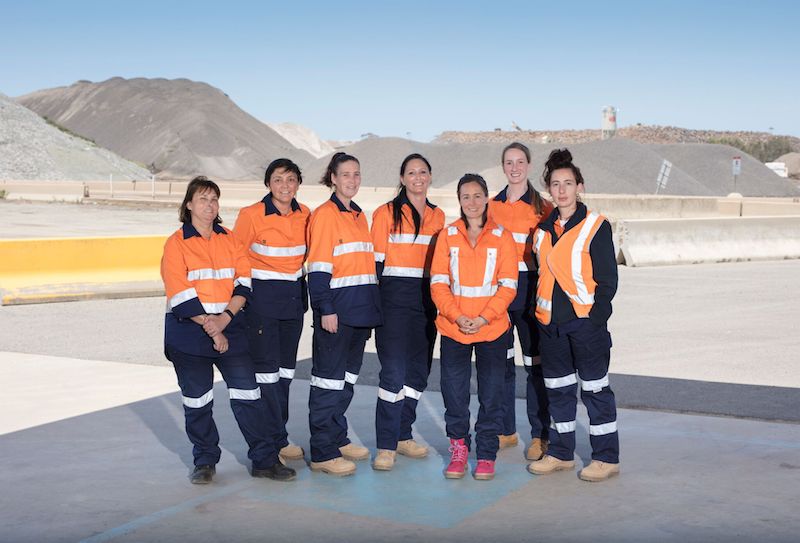
The results
“We are so pleased with our new hires. They’re a fairly diverse group. One candidate worked for Toyota in their assembly line, one was a massage therapist with a background in disability services, and another was a graduate in veterinary studies. They were all impressed that full-time employment was offered, as many of the jobs they were applying for were casual or contract. Permanent employment was attractive to them, along with the fact we provided free training and licensing.”
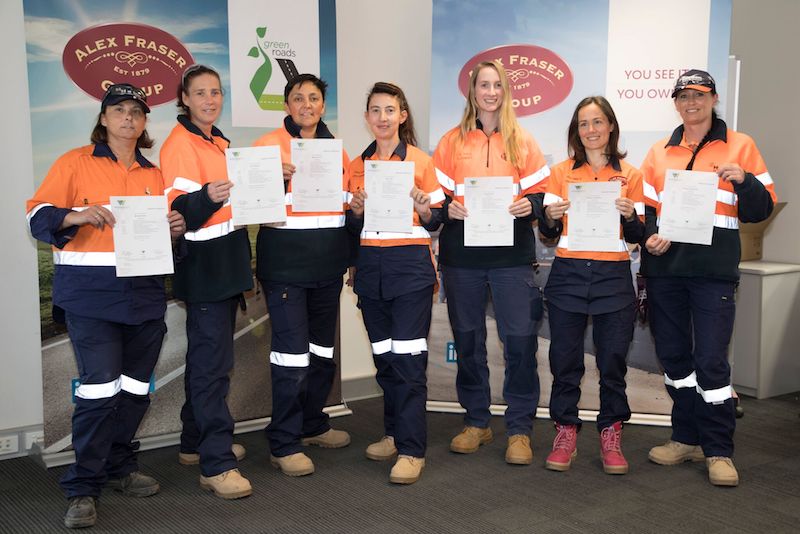
Alex Fraser and Hanson provide buddy programs for their new starters. In addition to new buddies, they will also provide new hires from the WDTC program a mentor, a psychologist who liaises with them and visits them on the job in order for them to raise any concerns or issues that they might not be able to raise with the companies. This supports them in achieving success and provides early warnings if there are any issues that need to be addressed.
If your organisation needs skilled people with professional qualifications, offering training opportunities can be so beneficial to both you and your candidates! Start by understanding what is happening in your industry and assess your unique employer offering in comparison to your talent competitors. Consider partnering with educational institutions and external recruitment specialists. Determine the best screening questions to formulate a great shortlist and use group assessment days to your advantage. If you’re hoping to become an equal opportunity employer, check your state laws before running your recruitment advertisements, and consider seeking advice from recruitment specialists.
Learn more about how Alex Fraser relies on their values and people to achieve success.
What training opportunities does your organisation provide? Tell us in the comments.

